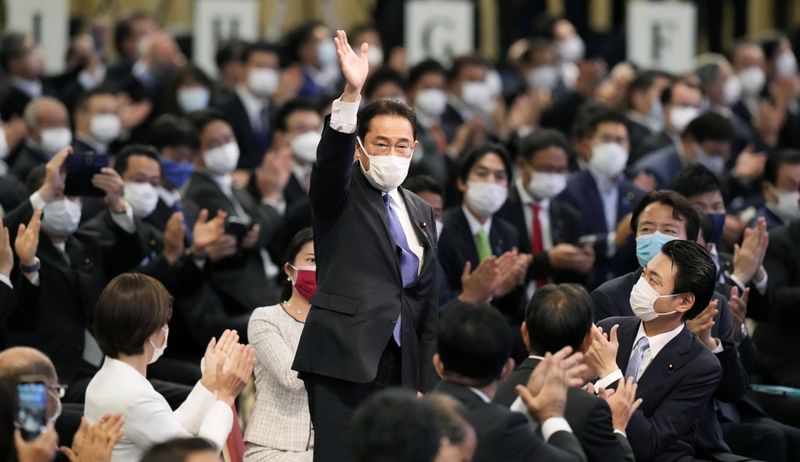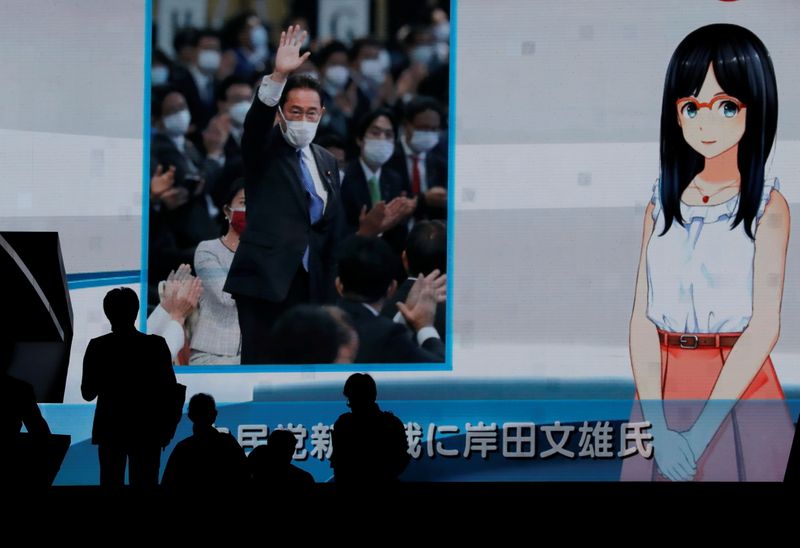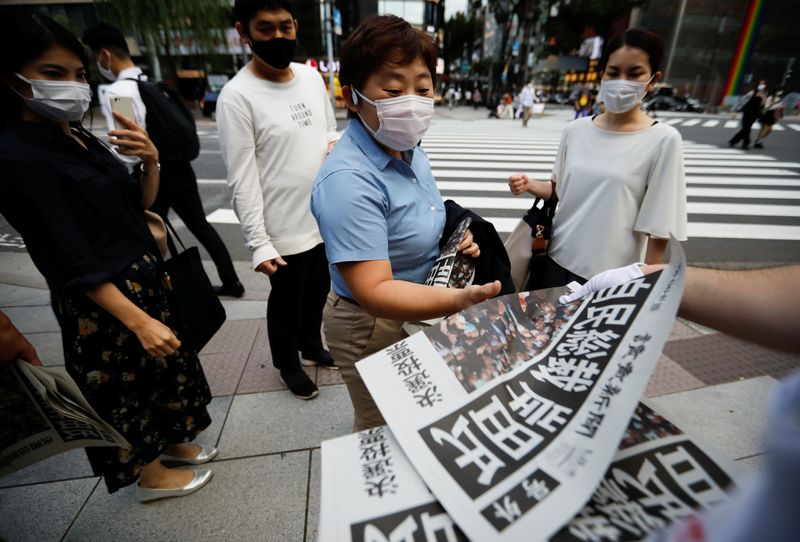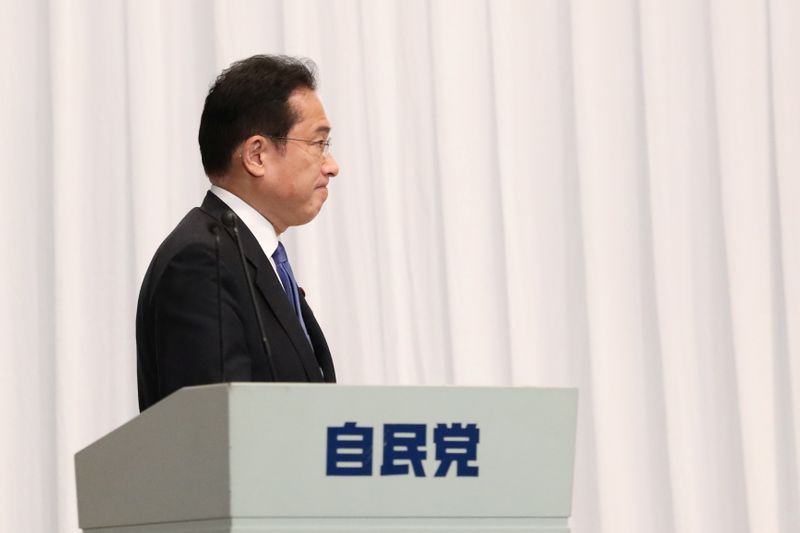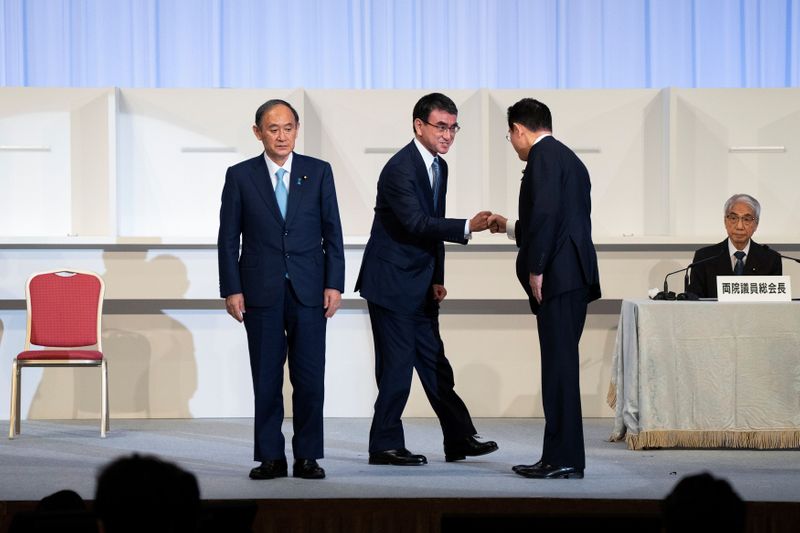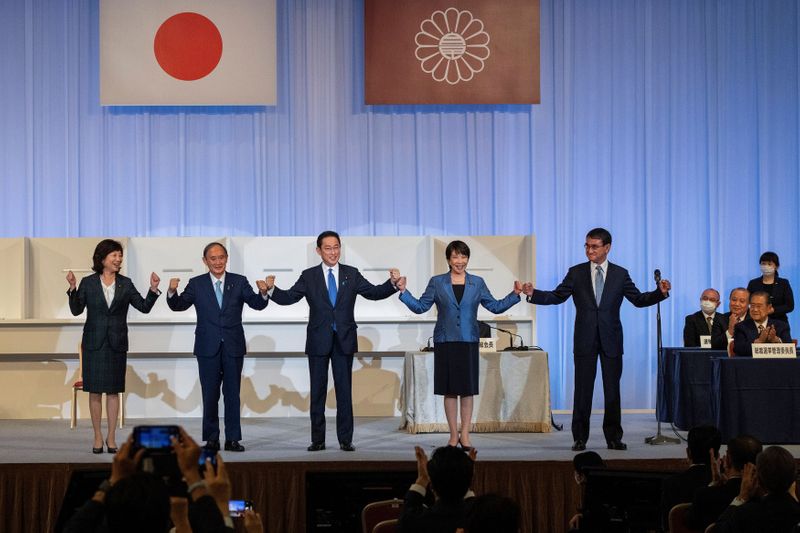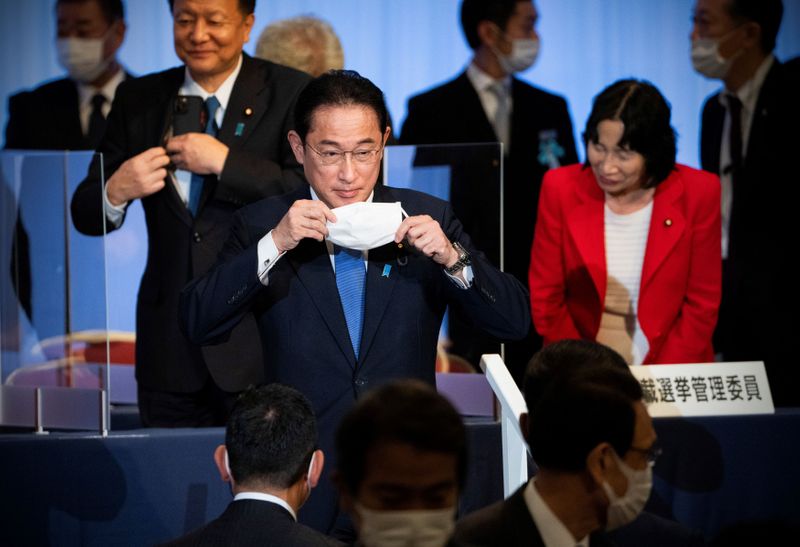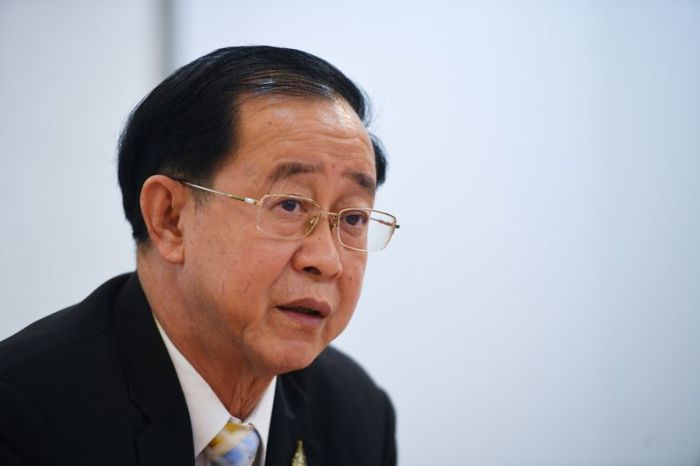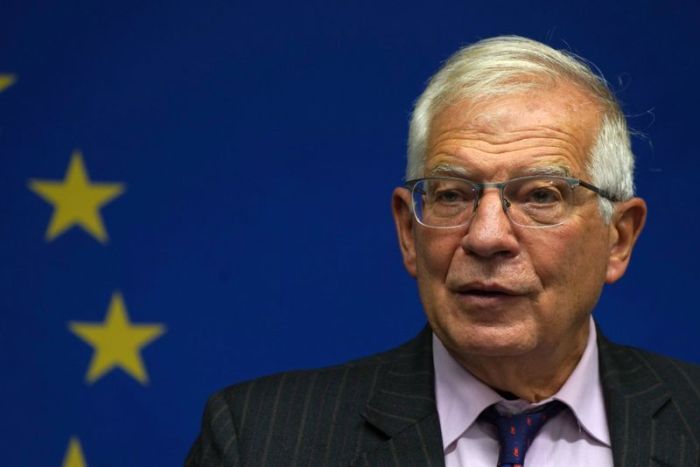TOKYO (Reuters) -Japan’s ruling Liberal Democratic Party (LDP) anointed former foreign minister Fumio Kishida as its new leader on Wednesday, a victory for the party elite that virtually ensures the soft-spoken consensus-builder will become prime minister within days.
Although he enjoys only moderate popular support and is saddled with a bland image, Kishida drew critical backing from some party heavyweights, allowing him to stop the momentum of outspoken rising star Taro Kono, the minister in charge of the coronavirus vaccine roll-out.
The Hiroshima lawmaker succeeds unpopular Prime Minister Yoshihide Suga, who did not seek re-election as party leader after just one year in office. Kishida is almost certain to become premier at a parliamentary session on Monday because of the LDP’s majority in the lower house.
It was not clear if Kishida’s tepid profile might spell problems for the LDP in a general election due by Nov. 28.
He focused on populist issues – such as the need to forge a new kind of capitalism and ease divisions of wealth – in his first news conference.
“We can’t achieve strong growth if wealth is concentrated in the hands of a small group of people,” he said, citing a need to create a “virtuous cycle” of growth and wealth distribution.
“We will strive to achieve economic growth and distribution,” of wealth, Kishida added, promising housing and education aid to address income disparity.
He has proposed a spending package of more than 30 trillion yen ($270 billion), and on Wednesday he said that stimulus https://www.reuters.com/world/asia-pacific/japans-new-premier-kishida-sustain-big-fiscal-monetary-support-now-2021-09-29 must be compiled by the year-end.
Kishida is expected to form a new cabinet and reshuffle the LDP executive in early October.
Parliament’s lower chamber will probably be dissolved in mid-October with an election on either Nov. 7 or Nov. 14, Japanese media said, quoting LDP executives.
ESTABLISHMENT VICTORY
“A win for the establishment. Kishida stands for stability, for not rocking the boat and most importantly, doing what elite technocrats tell him to do,” said Jesper Koll, expert director at Monex Group.
Kishida’s rival Kono, a fluent English speaker with a large following on Twitter and reputation for being forthright and headstrong, has been seen as something of a maverick and therefore not seen as the top choice of some LDP powerbrokers.
Kono set himself apart from the mainstream of the party establishment on social issues by supporting legislation that would recognise gay marriage, something Kishida has not backed.
Two female contenders, Sanae Takaichi, 60, and Seiko Noda, 61, dropped out of the leadership race after the first round.
Kishida is unlikely to go out on a limb with major policy shifts as Japan seeks to cope with an assertive China and revive an economy hit by the pandemic.
He shares a broad consensus on the need to boost Japan’s defences and strengthen security ties with the United States and other partners including the QUAD grouping of Japan, the United States, Australia and India, while preserving trade ties with China.
Kishida wants to beef up Japan’s coast guard and favours passing a resolution condemning China’s treatment of members of its Uyghur minority. He also aims to appoint a prime ministerial aide to monitor the Uyghur human rights situation.
Kishida was “the best possible option for Beijing”, CGTN, the English-language channel of China’s state television CGTV, said in a commentary after the leadership result.
His victory offers an opportunity for relations between the two countries to improve, it said.
($1 = 110.7420 yen)
(Reporting by Antoni Slodkowski, Leika Kihara, Kiyoshi Takenaka, Linda Sieg, Chang-Ran Kim, Ju-min Park, Daniel Leussink, Ritsuko Ando, Tetsushi Kajimoto, Elaine Lies and Yew Lun Tian in Beijing; Editing by Robert Birsel, David Dolan and Mark Heinrich)

